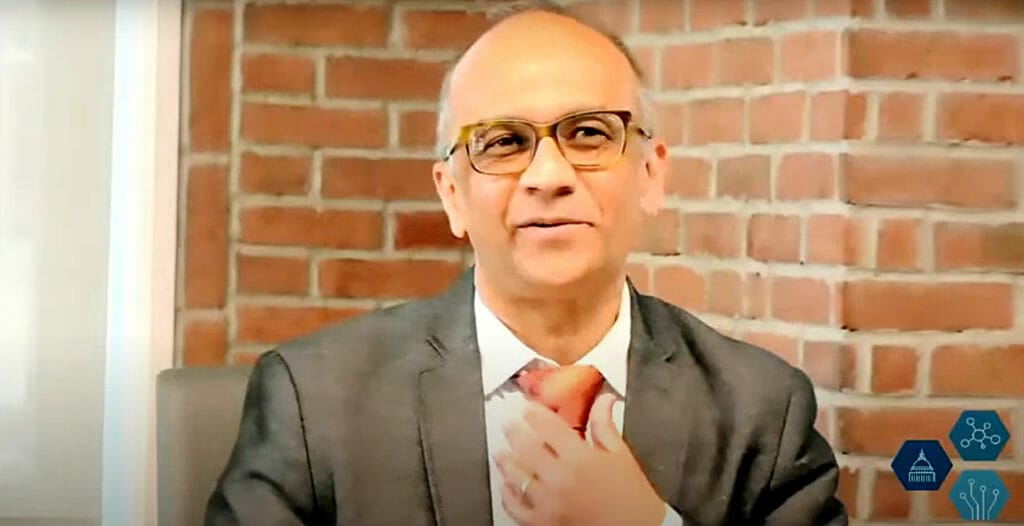
This is hot off the press, but it was fantastic to see my good colleague and College of Global Futures member Dr. Mahmud Farooque testifying before the House Subcommittee on Research and Technology yesterday as they discussed the National Science Foundation for the Future Act — an act that gets to the absolute heart of what we do in the College of Global Futures.
You can watch the hearing in full here — Mahmud’s testimony starts at 42:02 (below)
You can also read Mahmud’s full testimony here.
I would highly recommend reading Mahmud’s testimony and watching both his statement and the later Q&A in the video above.
In his oral testimony, Mahmud lays out a stark challenge that echoes the words of Evolutionary Economist Richard Nelson from nearly 50 years ago:
“Why is it that a country that recently landed a fifth rover on Mars, developed three effective vaccines for a runaway global pandemic in record time, and more generally has led the world in R&D funding for 70 years, seems unable to avert the untimely death of a half a million of its citizens; unable to provide equity justice and basic standards of living for its citizens living in poverty and facing discrimination; unable to keep the air and water clean and our neighborhoods safe; and is struggling to protect our democracy from falling victim to misinformation and manipulation?”
What is critically important here is the emphasis Mahmud’s testimony brings to the deep intertwining between science, technology and society. As he says in his opening comments:
“In general, the NSF for the Future Act is a bold step in the right direction. It offers an opportunity to address questions that are longtime in the making: How can we make science useful for society as we simultaneously advance knowledge and discovery in real time? How might we ensure that our decisions about science and technology enhances society’s pursuit of equality, justice, freedom, and overall quality of life? How might our science and technology investments, developments, and outcomes more fully reflect our public values?”
Mahmud goes on to note quite pointedly that business as usual for NSF doesn’t get us to where we need to be in society:
“If the NSF is to support scientific research that maximizes social return and public value, it must find a way to do so differently from how it does now. For example, the standard review criteria of intellectual merit and broader impact need to be revised and broadened to include public values and goals. In this spirit, research should prioritize collaborations with civic partners, government, and industry so that the knowledge, know-how, and technologies that come from research can be tested and deployed in the real world. Training programs for graduate students should include these same emphases so that science and engineering are not treated as separate of societal and ethical concerns. These suggestions are connected by a concern for public values alongside market and scientific ones.”
There’s a lot more substance here that I’d encourage you to read, but Mahmud concludes:
“[P]ublic engagement in science is fast becoming an essential component of research and development. The U.S. is seriously lacking in having a publicly supported infrastructure for incentivizing and funding substantive public engagement, the need and demand for which is continuing to grow. The good news is that NSF not only has seeded many public engagement activities that are bearing fruit, it has also supported many of the converging scientific fields: informal science education, science communication, science and technology studies, citizen science, uncertainty in decision-making, democratic theory and science policy. The task ahead then should be to take a holistic approach and support not just the engagement activity, but also its integration in research, education and decision-making.”
Please do take the time to watch the hearing, read the testimony, and pass on to others that have a stake in the future of NSF and the research the agency supports. Thanks!
Updated 5/7/21 to include quote from oral testimony